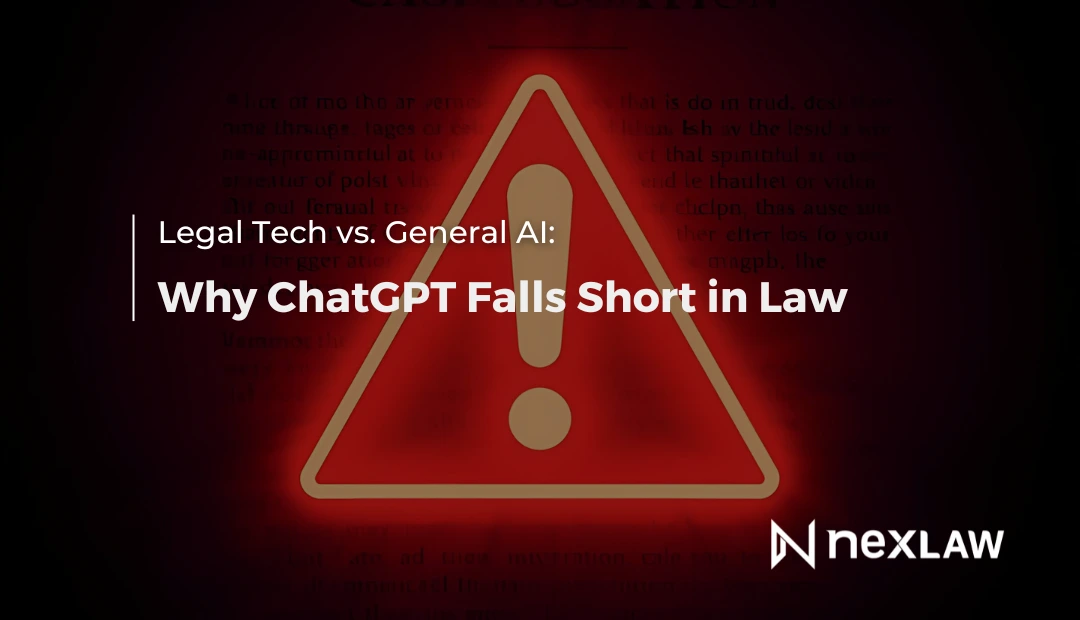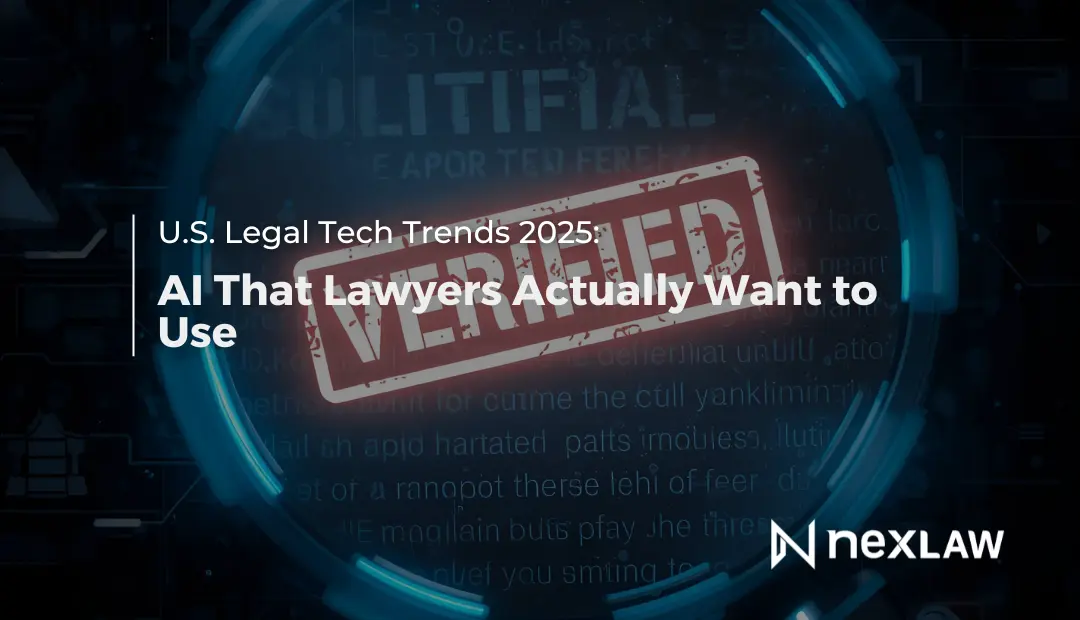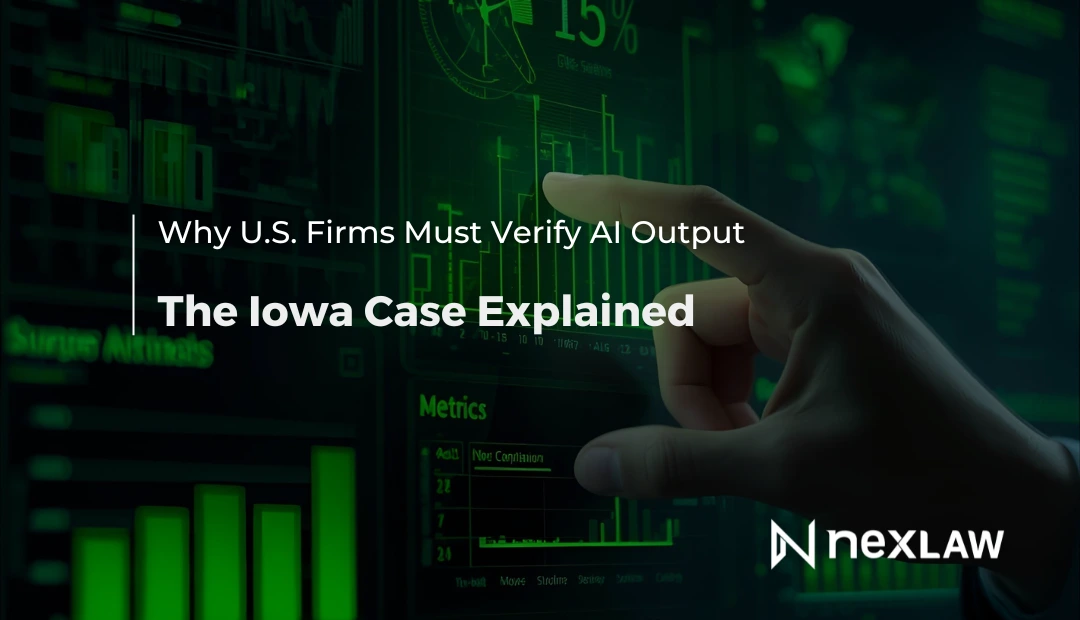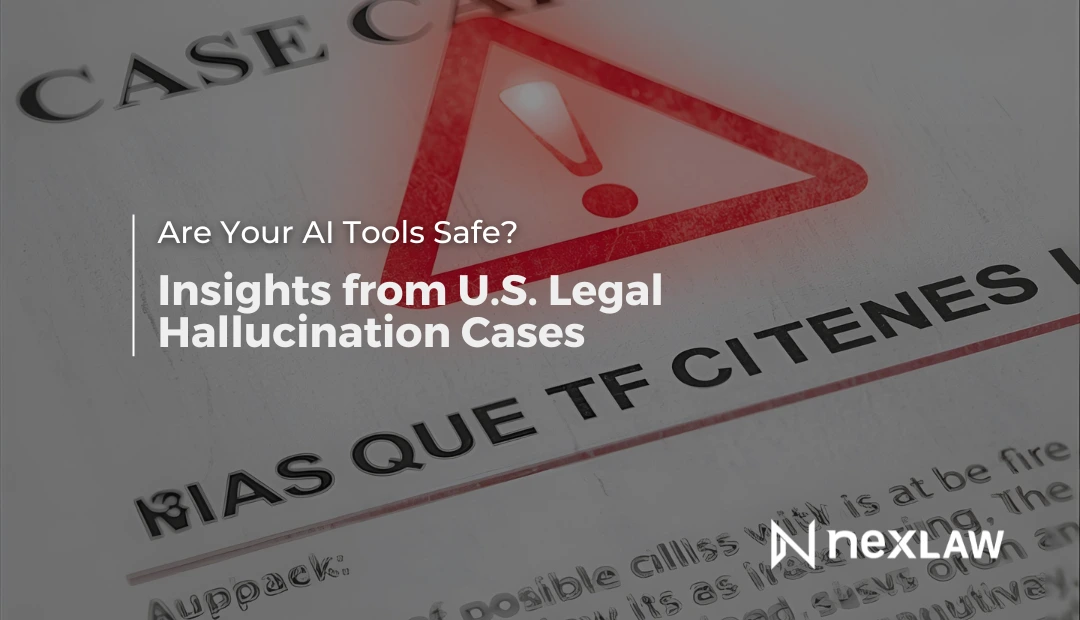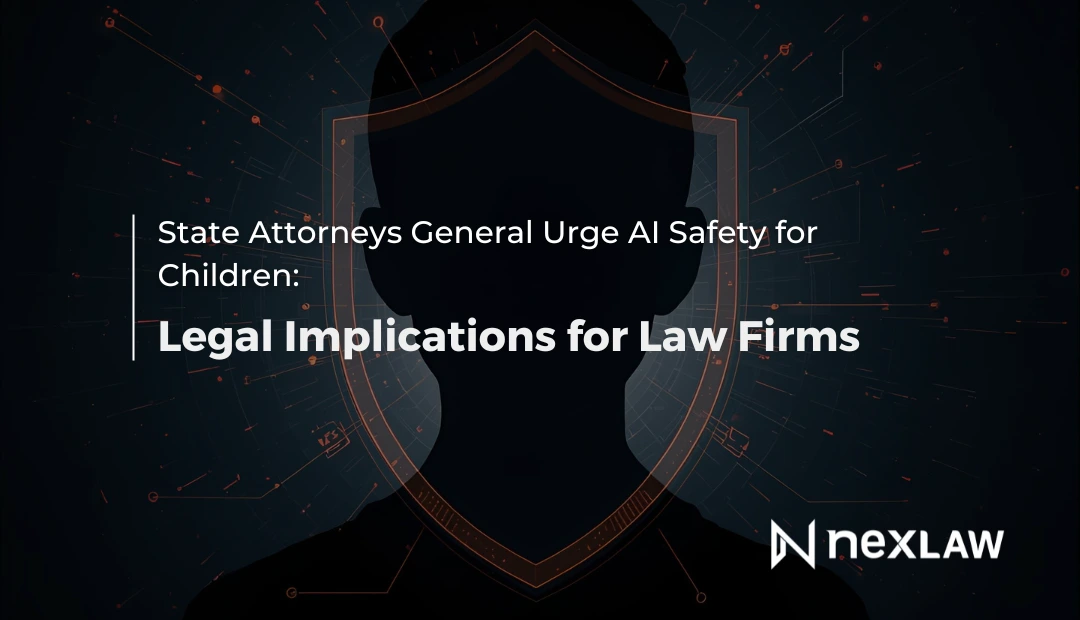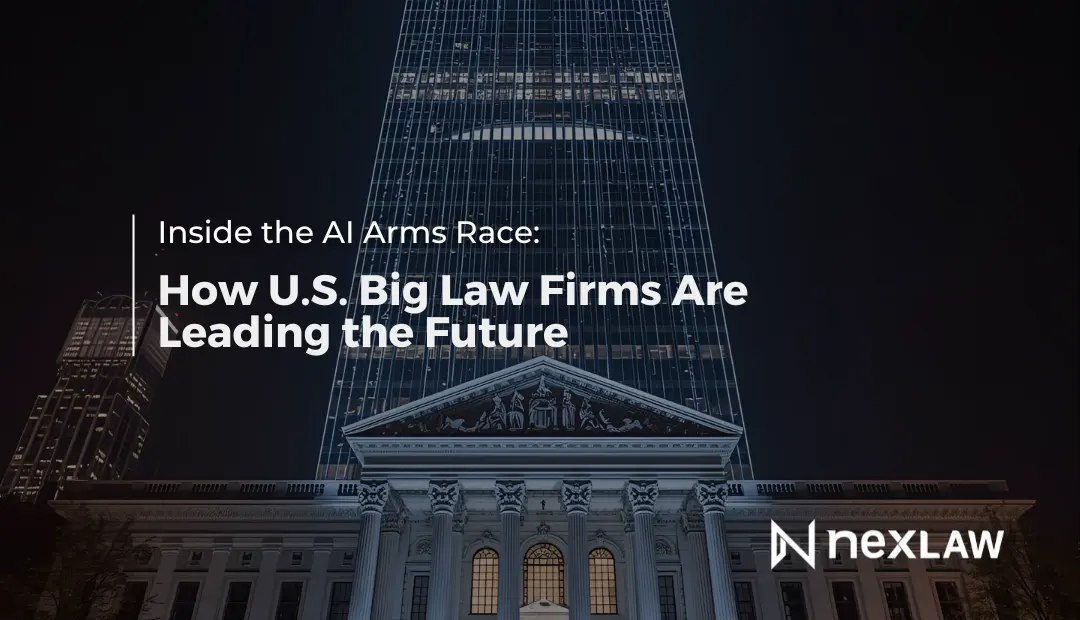Legal Tech vs. General AI: Why ChatGPT Falls Short in Law
Artificial intelligence (AI) has transformed many industries, and the legal sector is no exception. General-purpose AI models, such as ChatGPT, have gained attention for their ability to generate text, summarize information, and answer questions. While these capabilities may appear useful, they present limitations and risks when applied to professional legal practice.
Unlock Legal Insights Instantly!
Legal work requires accuracy, reliability, and strict adherence to confidentiality standards. General AI tools were not designed specifically for legal tasks and may produce inaccurate or fabricated information, commonly known as “hallucinations.” Handling sensitive client data through general AI platforms may also raise privacy and ethical concerns. Specialized legal AI tools, like NexLaw AI, are built to address these challenges, offering secure, verified, and efficient solutions tailored to law firms and legal professionals.
The Growing Role of AI in Legal Practice
AI is increasingly integrated into legal workflows, assisting with tasks such as:
- Summarizing case law or statutes
- Drafting contracts, pleadings, or legal memoranda
- Conducting preliminary legal research
- Supporting client communications
While these applications can increase efficiency, general AI tools were not built to meet the precision, reliability, and compliance standards required in law. Law firms quickly encounter limitations when relying on tools that may generate inaccurate or unverifiable content.
Understanding AI “Hallucinations”
A key concern when using general AI models in legal practice is hallucinations. This occurs when AI produces outputs that appear credible but are factually incorrect or fabricated. In a legal context, such errors could include:
- Citing case law or statutes that do not exist
- Drafting legal arguments based on inaccurate information
- Misleading clients or legal decision-makers
Even minor inaccuracies in legal documents can have serious professional consequences. Lawyers rely on precise information to provide advice, prepare filings, and represent clients effectively. Tools prone to hallucinations can compromise these responsibilities and introduce risk.
Data Privacy and Security Risks
Another limitation of general AI tools is data privacy. Many cloud-based AI platforms store user input, which can be used to train future models. For legal professionals, this raises concerns including:
- Confidentiality risks: Client information may be exposed outside the intended context.
- Security vulnerabilities: Cloud systems can be subject to breaches or unauthorized access.
- Compliance challenges: Lawyers must adhere to strict ethical rules regarding client confidentiality.
These risks make general AI models unsuitable for tasks involving sensitive legal information or client communications.
Specialized Legal AI: A Safer, Compliant Alternative
Specialized legal AI tools are developed specifically for legal practice and prioritize:
- Accuracy: Trained on verified legal sources, reducing the risk of hallucinations.
- Data Privacy: Designed to maintain strict confidentiality and security standards.
- Ethical Compliance: Align with professional ethics rules, including responsible data handling.
- Efficiency: Automate routine tasks like research, drafting, and case tracking while allowing lawyers to focus on strategic work.
These features make legal AI suitable for professional environments where reliability and compliance are critical.
How NexLaw AI Supports Legal Professionals
NexLaw AI exemplifies specialized legal AI designed for law firms and legal practitioners. Its key features include:
- Verified Legal Data: Research outputs are generated from curated and verified legal sources, minimizing errors.
- Data Privacy and Security: Information is handled under strict security protocols, ensuring confidentiality.
- Regulatory Compliance: Tools are designed to align with legal professional standards, supporting ethical practice.
- Workflow Efficiency: Automates tasks such as document drafting, summarizing case law, and managing research projects, freeing lawyers to focus on strategic matters.
By integrating NexLaw AI, law firms can safely leverage AI technology while maintaining accuracy, confidentiality, and compliance.
Comparing General AI and Specialized Legal AI
| Feature | General AI (e.g., ChatGPT) | Specialized Legal AI (NexLaw AI) |
|---|---|---|
| Accuracy | Prone to hallucinations and errors | Trained on verified legal sources |
| Data Privacy | Cloud storage may expose sensitive data | Strict confidentiality and security protocols |
| Compliance | Not designed for legal ethical standards | Built to comply with professional ethics |
| Efficiency | Requires verification of outputs | Streamlines research, drafting, and case management |
This comparison illustrates that while general AI may serve informational or casual purposes, specialized legal AI provides the reliability, security, and compliance needed for professional law practice.
Practical Applications for Law Firms
Law firms adopting specialized legal AI can benefit in several ways:
- Enhanced Research Accuracy: Quickly access verified case law, statutes, and legal commentary.
- Efficient Document Drafting: Prepare contracts, pleadings, and legal memoranda while maintaining accuracy.
- Data Security Assurance: Safeguard sensitive client information and maintain compliance with ethical standards.
- Improved Workflow: Automate routine tasks, allowing attorneys to focus on strategy and client advisories.
These capabilities enable law firms to leverage AI responsibly, minimizing risk while maximizing productivity and client service quality.
Conclusion
General AI tools, such as ChatGPT, demonstrate impressive natural language capabilities but carry significant limitations in legal practice. Hallucinations, data privacy concerns, and a lack of professional compliance make these tools unsuitable for handling sensitive legal matters.
Specialized legal AI, exemplified by NexLaw AI, offers a safer, more reliable alternative. By providing verified legal data, robust privacy safeguards, and adherence to professional ethics, NexLaw AI empowers legal professionals to work efficiently and responsibly.
For law firms seeking to integrate AI without compromising accuracy or client confidentiality, specialized legal AI represents the optimal solution for modern legal practice.
Lawyers who embrace AI today are shaping the legal profession of tomorrow. Whether you’re part of a litigation team, a solo attorney, or a paralegal eager to expand your role, NexLaw makes it possible.
NexLaw is designed to help paralegals and attorneys—solo or from small and mid-size—prepare cases more efficiently, with greater accuracy and strategic insight.
Book a Guided Demo — See how NexLaw fits seamlessly into your practice and transforms your workflows with a quick walkthrough
You can either start your free 3-day trial (no card required) or 7-day trial (card required) to get hands-on right away — Explore NexLaw risk-free and experience firsthand how AI can enhance efficiency, accuracy, and client satisfaction.
*t&c applied | visit our website for more details
With NexLaw, the future of litigation is here - AI-powered, accurate, and accessible.
